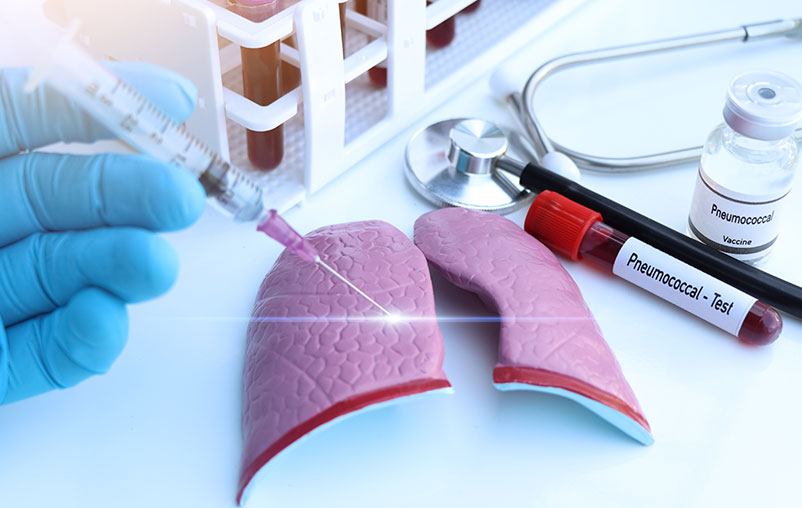HIV/AIDS
HIV (human immunodeficiency virus) is a virus that weakens the immune system, making it harder for your body to fight infection and illness.
HIV is not the same thing as AIDS (acquired immunodeficiency syndrome). HIV is the virus that causes AIDS. If you don’t get treatment for HIV, it can turn into AIDS.
People living with AIDS can get sick from infections that a healthy person’s immune system would overcome.
With proper and consistent use of medication a person living with HIV will not develop AIDS.
Risk Factors for HIV
In the United States, HIV affects all populations and ages of people. This includes children, teens, adults and older people.
HIV can be transmitted during sexual activity when fluids that transmit HIV (blood, semen, vaginal fluid, breast milk) are exchanged.
You are at a higher risk of getting HIV if you:
- Have unprotected sex without knowing your partner’s HIV status
- Share needles, syringes or other drug equipment with a person who has untreated HIV or an uncertain HIV status
- Are a gay or bisexual man
You cannot get HIV from contact with everyday objects like a toothbrush used by a person living with HIV.
HIV also does not spread through:
- Air
- Water
- Hugging
- Sharing a toilet
- Sharing dishes and/or utensils
- Urine
- Saliva
- Sweat
HIV Risk to an Unborn Baby
There is also a risk to an unborn baby if you are pregnant and living with HIV. The baby can get HIV before or during birth. He or she may also get HIV through breastfeeding.
It is important to know your status to prevent HIV transmission if you’re pregnant. Ask your primary care provider about getting tested for HIV.
If you are living with HIV and take HIV medicine as prescribed during pregnancy and your baby gets treatment after birth, the chances of transmitting HIV to your baby are less than 1%, according to the National Institutes of Health.
HIV Prevention
Avoiding the HIV risk factors are important steps to prevent its spread.
To reduce your risk of getting HIV from unprotected sex or shared needles, you can use medications called pre-exposure prophylaxis (PrEP) or post-exposure prophylaxis (PEP). PrEP medication protects you when you don’t have HIV but may be at risk.
PEP medicine is prescribed in emergency situations. It can protect you after high-risk exposure if taken within 72 hours.
HIV Treatment
While there is no cure for HIV, there are ways to manage it and stay healthy. Getting regular checkups with your medical provider is important to detecting HIV early. Access to treatments has helped decrease HIV-related deaths worldwide.
HIV treatment involves antiretroviral therapy (ART). ART is a medication your primary care provider can prescribe for you. It helps reduce the amount of HIV in your body (also called a viral load). When your viral load is undetectable, this means HIV is not transmittable through sex. This is known as U=U.
It’s important to start HIV treatment as early as possible to stay healthy.
If you have HIV and take medication as prescribed, you can live a healthy life and not transmit HIV to others.
HIV in Bexar County
The 2022 Bexar County Community Health Needs Assessment [PDF] reports that new cases of HIV decreased by 15% between 2015 and 2018 in Bexar County. In 2019, there was a slight uptick in new HIV cases.
In 2021, 6,913 people were living with HIV in Bexar County, according to data from AIDSVu.
In Bexar County, HIV is most common in people ages 25 to 34, (41%), then people ages 35 to 44 (27%) and then people ages15 to 24 (24%).
HIV Testing
About half of Bexar County residents have been tested for HIV, according to the 2022 Bexar County Community Health Needs Assessment.
Black respondents were more likely to have been tested than Hispanics and whites.
University Health Resources
Primary Care
University Health primary care providers can provide preventive care, screenings and education regarding HIV. They can also make referrals to specialists if needed.
Family-Focused AIDS Clinical Treatment Services
The Family-Focused AIDS Clinical Treatment Services Clinic at University Health works to improve the health of people living with HIV in San Antonio and South Texas.
SMASH
SMASH (Substance Misuse and Sexual Health) aims to reduce the transmission of hepatitis among men in Bexar County. This program is for men who are at risk for substance use disorder and HIV/AIDS.
Positive Links for Youth and Emerging Adults (PL4Y)
Young adults (18-29 years old) living with HIV are the least likely to engage in HIV care or achieve virus suppression. The purpose of PL4Y is to adapt an existing mobile health intervention to the specific needs and developmental stages of young adults with HIV in South Texas.
CareLink
CareLink is a financial assistance program for those who don’t have health insurance and don’t qualify for other coverage. See if you qualify for CareLink and enroll online.
Texas Wears Condoms
Texas Wears Condoms helps stop the transmission of HIV and other STIs. Texas Wears Condoms offers free condoms to all Texas residents over 18 through an online order form. They also provide at-home HIV testing kits for qualifying individuals.
Ryan White Housing Assistance
The Ryan White Housing Opportunities for Persons with AIDS program provides housing assistance and support for low-income people living with HIV/AIDS and their families.
Ryan White Parts A, B & D
This program provides care and treatment for people living in the San Antonio area with HIV who are low-income, uninsured and undeserved to improve their health. Learn more on the San Antonio Area HIV Health Services Planning Council website.
Community Resources
Alamo Area Resource Center (AARC)
AARC serves the LGBTQ+ community. Their doctors provide primary care, HIV care and PrEP at affordable prices.
CentroMed Santa Rosa Clinic
Find HIV care and PrEP at the CentroMed Santa Rosa Clinic. Located at 315 North San Saba Suite 103, San Antonio, TX 78207. Please call 210-922-7000 to make an appointment.
Beat AIDS
BEAT AIDS teaches people in San Antonio about the effects of HIV on the community. Beat AIDS provides prevention, education and medical and support services.
Kind Clinic
The Kind Clinic serves Texans who need access to safe, supportive sexual health services. They offer PrEP, PEP, STI testing and treatment, intersex care and gender-affirming care through virtual care and the San Antonio clinic.
Metro Health STI/HIV Clinic & Mobile Clinic
You can get a diagnosis, treatment and counseling for STIs and HIV on a walk-in basis at the Metro Health STI Clinic. Fees vary based on services. A mobile clinic travels around San Antonio, offering HIV testing and care.
PrEP Clinic
The San Antonio Metropolitan Health District’s PrEP Clinic helps people at high risk for HIV to remain healthy. The clinic accepts walk-ins but encourages people to schedule an appointment.
STDcheck.com
Find an online test location for confidential, convenient HIV testing near you. STDcheck.com lab location has a simple testing process, and you’ll get fast results.
San Antonio AIDS Foundation
The San Antonio AIDS Foundation helps people living with HIV. They offer mental health counseling, medical care, HIV and STD testing, pharmacy services, housing and meals.
Texas HIV/AIDS Hotline
In Texas, call 737-255-4300 to talk to someone about HIV/AIDS.



